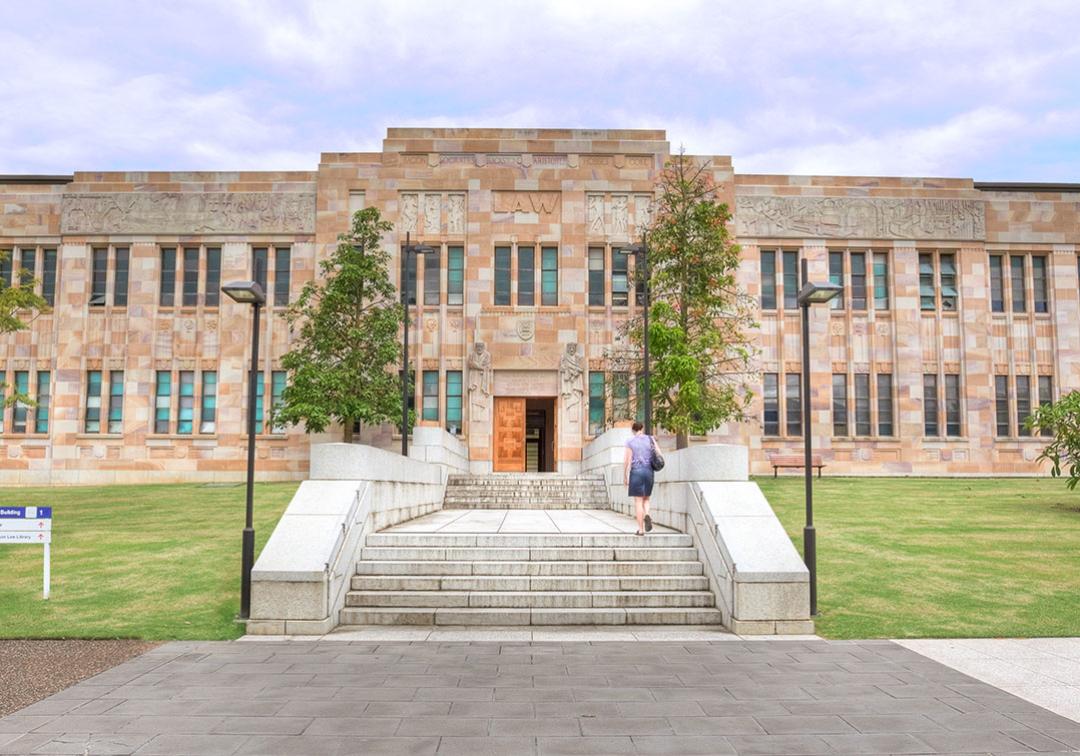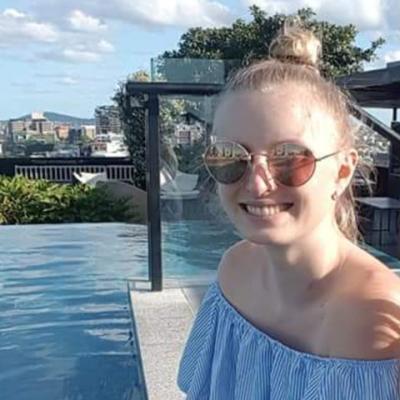
Masters of International Relations / Peace and Conflict Studies
Overview
Graduate with two sought-after Masters qualifications, ready to engage in the fields of conflict resolution, aid and development.
This two year full-time (or part-time equivalent) dual degree program allows you to obtain two highly sought-after and complementary qualifications from a school that is recognised internationally as a leader in peace and conflict studies. It provides an understanding of the broad structures and dynamics of the international system, combined with more specialised skills and knowledge of critical issues and debates relating to peace and conflict.
The Master of International Relations covers the key issues and challenges in contemporary world politics, international security, foreign affairs and global, international and regional governance. You'll be able to develop skills in international political analysis and political risk evaluation, and in addressing bilateral, regional and global policy objectives.
The Master of Peace and Conflict Studies builds knowledge of the forces that generate contemporary conflict and the process and practices that contribute to conflict prevention, resolution and peace-building. It also equips you with practical skills to engage in conflict analysis and resolution, and peace-building in the contemporary global context.
Our graduates have gone on to work in areas such as diplomacy, government, think-tanks, the UN, NGOs and the media.
Program highlights
- Benefit from a unique dual degree where you’ll learn to analyse political conflict and identify solutions.
- Choose to include a fieldwork experience or research thesis, and/or participate in the Graduate Centre Mentorship Program.
- Learn from award-winning teachers, internationally renowned academics and activities designed to enhance employability.
- Develop a valuable skillset and be in global demand.
How you'll learn
Your learning experiences are designed to best suit the learning outcomes of the courses you choose.
- Lectures
- Overseas study
- Research experience
What you'll study
At UQ, degrees are called 'programs' and subjects are called 'courses'.
Career possibilities
Postgraduate study can take you anywhere. Here are some of the careers you could be on your way to:
- Diplomatic officer
- UN delegate
- Foreign affairs and trade official
- Indigenous rights adviser
- Humanitarian aid official
- Foreign correspondent
- Human rights advocate
- Foreign policy adviser
- Asia-Pacific international relations adviser
Events
See all events
29 June
Voyages to the Underworld: UQ Centre for Western Civilisation Winter School
Stories
See all stories
UQ people
How the UQ Pro Bono Centre is shaping career-ready graduates
5-minute read

UQ people
Meet the CEO championing neurodiversity in the workplace
4-minute read
Stories
See all stories
UQ people
How the UQ Pro Bono Centre is shaping career-ready graduates
5-minute read

UQ people
How a UQ scholarship helped Paul pursue his dream
5-minute read

UQ people
Meet the CEO championing neurodiversity in the workplace
4-minute read
Entry requirements
Entry requirements
To be eligible for entry, you'll need:
- a bachelor's degree (or equivalent) in a relevant discipline (see below) with a GPA of 5.0, or
- a bachelor's degree (or equivalent) in any discipline, plus the Graduate Certificate in International Relations from UQ, or the Graduate Certificate in Mediation and Conflict Resolution from UQ, or the Graduate Certificate in Peace and Conflict Studies from UQ, with a GPA of 4.0, or
- a bachelor's degree (or equivalent) in any discipline (see below) with a GPA of 5.0, plus 3 years full-time equivalent, relevant work experience (see below).
The listed grade point averages (GPA) are on a 7-point scale. Applications based on work experience will be individually assessed.
- a bachelor's degree (or equivalent) in a relevant discipline (see below) with a GPA of 5.0, or
- a bachelor's degree (or equivalent) in any discipline, plus the Graduate Certificate in International Relations from UQ, or the Graduate Certificate in Mediation and Conflict Resolution from UQ, or the Graduate Certificate in Peace and Conflict Studies from UQ, with a GPA of 4.0, or
- a bachelor's degree (or equivalent) in any discipline (see below) with a GPA of 5.0, plus 3 years full-time equivalent, relevant work experience (see below).
The listed grade point averages (GPA) are on a 7-point scale. Applications based on work experience will be individually assessed.
Relevant disciplines for previous qualifications
Relevant work experience
Relevant work experience, which should be supported with evidence (see below), may be paid or voluntary and includes:
- work in planning, management and/or implementation of international policy and/or governance initiatives, including work for international organisations, non-governmental organisation, government agencies, social movements, and the international business community, and
- work in a relevant peace and conflict organisation including community organisations, non-governmental organisations, government agencies, or other cognate organisation, that may include work experience in planning, research, management, implementation or evaluation of domestic or international peacebuilding, mediation, conflict resolution, transitional justice and cognate efforts to manage conflict or facilitate peace, and
- a demonstration of computer literacy, research and writing skills, and the ability to work collaboratively.
Evidence of relevant work experience should include a letter from your employer (and/or previous employers) stating the following:
- That you work (or worked) within the specified organisation
- The nature of your work, including any relevant duties and responsibilities.
- The length of time that you worked there (i.e. 3 years)
- Whether your employment was full-time, part-time* or casual*.
*if you worked part-time or casual, please list the average number of hours worked per week.
English language requirements
IELTS overall 6.5; reading 6; writing 6; speaking 6; listening 6. For other English Language Proficiency Tests and Scores approved for UQ
TOEFL iBT (including Paper Edition) - Overall 87, listening 19, reading 19, writing 21 and speaking 19.
PTE Academic - Overall Score of 64 and 60 in all sub bands.
BE - A minimum overall grade of 4 plus a minimum grade of C in all macro skills.
CES - Overall 176 and 169 in all sub bands.
OET is not accepted.
There are other ways to meet the English language requirements. For some programs, additional conditions apply.
Student visas
International students who are accepted into full-time study in the Masters of International Relations / Peace and Conflict Studies are eligible to apply for an Australian student visa (subclass 500).
There are a number of requirements you must satisfy before a visa is granted, including the Genuine Student (GS) requirement.
Need help meeting the entry requirements?
Fees and Scholarships
Indicative annual fee
Approximate yearly cost of tuition (16 units). Your fees will vary according to your study load. Fees are reviewed each year and may increase.
$34,512
2026
Approximate yearly cost of full-time tuition (16 units). Your fees will vary according to your study load. Fees are reviewed each year and may increase.
AUD $45,792
2026
Government assistance
Financial aid
As an international student, you might be eligible for financial aid – either from your home country, or from the Australian Government.
FEE-HELP
Domestic students who are accepted into the Masters of International Relations / Peace and Conflict Studies pay tuition fees.
FEE-HELP is an Australian Government loan scheme to assist eligible students with the cost of their tuition fees.
Centrelink support
The Australian Government offers a number of income-support payments to eligible Australian university students.
Scholarships
You may be eligible for more than 100 scholarships, including:
How to apply
Applying online
All international applications should be submitted to UQ. If you prefer, you can use an approved UQ agent near you.
The program code for the Masters of International Relations / Peace and Conflict Studies is 5688.
Applying online
All domestic applications should be submitted to UQ.
The program code for the Masters of International Relations / Peace and Conflict Studies is 5688.
Important dates
The closing date for this program is:
- To commence study in semester 2 - May 31 of the year of commencement.
- To commence study in semester 1 - November 30 of the previous year.
Visa processing times vary. Apply and accept your offer as early as you can.
To learn more about UQ dates, including semester start dates, view the Academic Calendar.
Important dates
The closing date for this program is:
- To commence study in Semester 1 - January 31 of the year of commencement.
- To commence study in Semester 2 - June 30 of the year of commencement.
To learn more about UQ dates, including semester start dates, view the Academic Calendar.
Aboriginal and Torres Strait Islander applicants
For support with applying – or if you have any questions about university life – get in touch with our Aboriginal and Torres Strait Islander Studies (ATSIS) Unit.
Explore other programs
Express yourself. And your interest.
They say choosing a degree is hard, which is why we've made it easy. Register your interest and we'll send you everything you need to know about applying to UQ.





